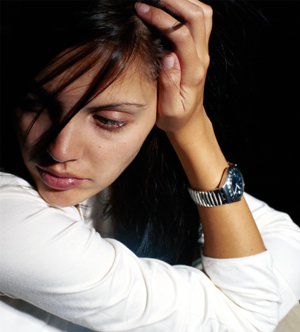Dec 24, 2025
Dec 24, 2025
 The Times of India (TOI, July 28) carried the news item, "Indians are a depressed lot: Report". The World Health Organization (WHO) backed study mentions that 36% of Indians suffered a Major Depressive Episode (MDE) during their lifetime. The lowest prevalence of MDE was in China (12%). The average age of onset of depression in India is 31.0 years, compared to 18.8 years (China), and 22.7 years (USA). These findings are based on interviews of over 80,000 people in 18 countries by 20 different researchers. This WHO study further infers that depression affects about 121 million people worldwide, and leads to a shorter lifespan in the 15-44 age group. The percentage of lifetime MDE was higher in high-income group (28.1%) than in low to middle-income group (19.8%). Women were found to be twice as likely to suffer depression than men. The main cause was found to be loss of partner from death or divorce.
The Times of India (TOI, July 28) carried the news item, "Indians are a depressed lot: Report". The World Health Organization (WHO) backed study mentions that 36% of Indians suffered a Major Depressive Episode (MDE) during their lifetime. The lowest prevalence of MDE was in China (12%). The average age of onset of depression in India is 31.0 years, compared to 18.8 years (China), and 22.7 years (USA). These findings are based on interviews of over 80,000 people in 18 countries by 20 different researchers. This WHO study further infers that depression affects about 121 million people worldwide, and leads to a shorter lifespan in the 15-44 age group. The percentage of lifetime MDE was higher in high-income group (28.1%) than in low to middle-income group (19.8%). Women were found to be twice as likely to suffer depression than men. The main cause was found to be loss of partner from death or divorce.
| Contentment as a virtue of human behaviour seems to have been lost in the wilderness, and one yearns for more and more. Definitely this has led to an increased incidence of depression where one develops a feeling of helplessness and worthlessness, with other dire consequences. |
The Times of India (TOI, August 2) carried the news, "WHO says India is a depressed nation?".Prof. S.K. Chaturvedi, Head, Dept. of Psychiatry, National Institute of Mental Health and Neuro Sciences (NIMHANS), Bangalore has refuted the statement that
"India is a depressed nation". He says that the WHO figures could be highly inflated, and very few Indians suffer severe depression (MDE), and most of the people have mild to moderate forms of depression. The statistical methodology may be at the root of the problem based on a western population which does not match India. Truly, the socio-economic scenario in India and the west is quite different. Moreover, I remember a statement once by my medical statistics teacher, "One can use statistics more for support, rather than illumination".
Today life is being lived in the fast-lane, sprinkled with stress, worry, competition, loneliness, pride, envy, multiplying aspirations, marital discords, and a quarrelsome neighbourhood. It is said, "You can be as happy as your neighbour wants you to be". Contentment as a virtue of human behaviour seems to have been lost in the wilderness, and one yearns for more and more. Definitely this has led to an increased incidence of depression where one develops a feeling of helplessness and worthlessness, with other dire consequences.
Depression is an 'affective' disorder which afflicts many individuals during their lifetime. Benjamin Franklin said, "Nothing is certain in the world but death and taxes", Franklin perhaps missed 'sadness'. The psychiatric term "affect" refers to feelings - pleasant and unpleasant - which man experiences during his lifetime. Such feelings regulate the emotional and mental state at any point of time.
Depression may be classified into:
(i) Exogenous depression; and
(ii) Endogenous depression.
Exogenous (reactive) depression has a well defined precipitating stress factor like loss of a loved one. It is usually self-limiting, and responds to assurance, support, and psychotherapy. Endogenous depression is unrelated to any significant external event. It is possibly caused by some neurochemical imbalances in the brain. This is a classic indication for antidepressant medication. Medications like the tricyclics, selective serotonin-reuptake inhibitors (SSRIs), and monoamine oxidase inhibitors (MAOIs) are available today. Further consideration of these agents is beyond the scope of this article. A caution is that antidepressant drug therapy must always be taken under medical supervision.
Certain simple steps outlined below can alleviate the malady to quite an extent:
All these measures applied diligently will revive one into a new personality leaving depression behind.
Image (c) Gettyimages.com
06-Aug-2011
More by : Dr. Frank S. K. Barar